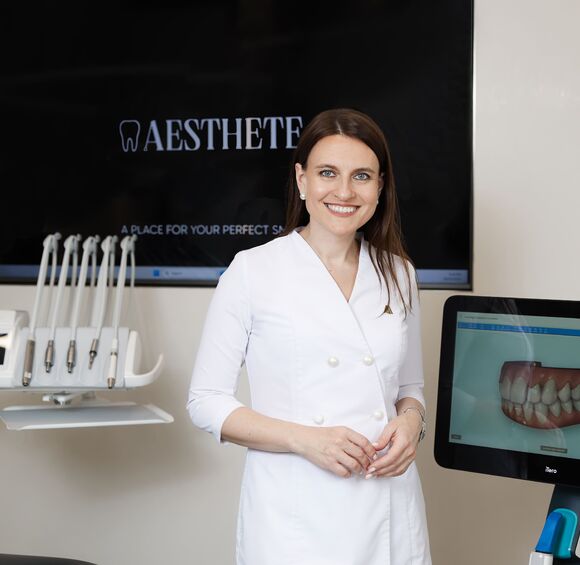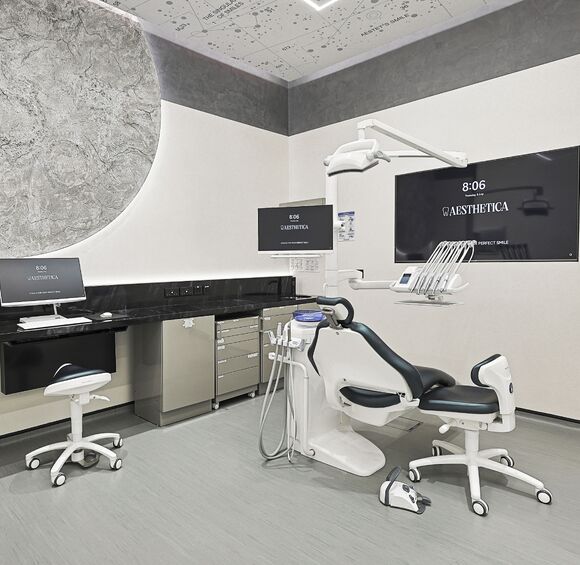For the restoration of a single tooth or a row of teeth, implantation is often used. This is an effective method based on the fact that the doctor implants dental implants—metal pins—into the jawbone, on which crowns are then installed. In the vast majority of cases, artificial roots take well and serve their owners for years and decades. But sometimes problems arise, and dental implants fall out. Here, we explain why this can happen and what to do if the metal pin does not stay in place.
Signs of Implant Failure

The obvious symptom of this problem is that the artificial root, which holds the crown, has fallen out of the place where it was installed. Where it used to be, an open space forms, and a wound may appear. However, the loss rarely occurs so obviously. More often, it is a prolonged process during which the metal pin becomes less stable and eventually falls out. Signs indicating the possibility of such a development:
- noticeable mobility of the rod implanted in the jawbone or elements installed on it—this can be felt when chewing or if the implant is accidentally touched with the tongue;
- feeling a gap between the gum and the pin;
- constant pain at the site of the artificial tooth root, which intensifies when pressed and does not go away even after taking painkillers;
- swelling, redness of the gum around the implanted tooth—this condition is normal immediately after surgery but should subside within 4-5 days;
- bleeding, oozing of fluid;
- suppuration, pus discharge after pressing on the gum;
- gum recession—its edge lowers, exposing the implanted pin;
- unpleasant, putrid odor from the mouth;
- increased body temperature—this can also be normal after surgical intervention but should subside in 4-5 days. In most cases, problems with dental implants arise shortly after installation. They are usually associated with peri-implantitis—inflammation of the soft and bone tissues around the implantation site caused by infection. The likelihood of falling out significantly decreases six months after implantation and tends to zero 1.5-2 years after it. However, even several years after the installation of artificial teeth on metal pins, there can be difficulties with their retention. Regardless of how much time has passed since the implantation, you should see a doctor if you suspect that the implanted pins may fall out. The dentist will conduct an examination, take X-rays if necessary, and assess the situation. If measures need to be taken to save the tooth, they will explain what to do.
Why Might Implants Fall Out?
Signs of trouble-free implant integration include the stable position of the implanted rod, the natural color of the gum at the installation site, and its normal, healthy condition several months after the surgery. It is important for the doctor to confirm the fact of quality osseointegration. After this, they will load the artificial roots with permanent crowns, and they can be used for a long time. But there are several reasons why implants might fall out. They are divided into three groups:
- medical errors;
- problems caused by the patient violating the doctor's prescriptions;
- circumstances beyond the control of the doctor or the patient. Let's consider each group of reasons in detail.
Medical Errors
Even at the diagnostic stage, the dentist can make a mistake, for example, by incorrectly determining the volume and density of the jawbone. If the bone tissue is loose or insufficient, it will not hold the implant. To solve the problem, preliminary surgery—osteoplasty—is needed. Additionally, an inattentive or insufficiently qualified doctor may:
- not consider contraindications, possible allergic reactions—artificial roots are made of titanium and its alloys, which have high biocompatibility, but even these can rarely cause allergies and rejection;
- incorrectly choose the place for implant placement or the angle at which it needs to be implanted;
- use low-quality implants;
- not pay attention to the patient's insufficient preparation—such as untreated cavities or unresolved gum inflammation;
- make mistakes and violate the protocol directly during installation—poorly prepare the bed, install the artificial root at an angle other than the one predetermined, or damage the floor of the maxillary sinus.
Violation of Doctor's Prescriptions
After the surgery, the patient is always informed about how to care for the oral cavity and what to avoid for some time. It is important:
- not to eat hard foods;
- not to overcool or overheat—thus avoiding baths and saunas;
- to rinse the mouth with antiseptic solutions;
- to carefully brush teeth using a not-too-hard brush;
- not to smoke;
- to take prescribed medications—these may include antibiotics, painkillers, anti-inflammatory, and anti-edema drugs;
- to regularly visit the doctor for check-ups according to a predetermined schedule. Failure to follow these recommendations can cause difficulties with implant integration.
Circumstances Beyond the Control of the Doctor or Patient
This category includes:
- illnesses, weakened immunity—it is important to monitor health and promptly respond to symptoms of any diseases so that they do not become chronic;
- injuries—it is necessary to avoid falls and blows to the jaw area.
Which Implant Elements Can Fall Out?

An implanted tooth consists of several parts. Its base is a metal pin that functions as a root. Normally, immediately after installation, bone tissue begins to form around it. Initially, it is soft and loose but gradually becomes denser until it hardens completely. The bone provides reliable retention of implants, so they rarely fall out—approximately 1-2% of cases. Temporary and permanent elements are attached to the metal pin:
- Gum former – it is installed for a while to shape a beautiful and even gum edge, and then removed when it has fulfilled its function.
- Abutment – an adapter, a mediator between the artificial root and the crown.
- Crown – a prosthesis that replaces the visible part of the tooth and can be temporary or permanent. These elements can also fall out. The main reasons for this happening include installation errors, such as insufficiently reliable connection, or strong mechanical impact on the jaw, such as a blow.
What to Do If an Implant or Its Part Falls Out?
If an implant or its individual elements fall out, become loose, or cause pain at the installation site, it is a reason to consult a doctor. Even if it turns out that the problem is caused by other reasons, it is necessary to visit a clinic and talk to a dentist. They will conduct an examination, assess the condition of the dental system and oral cavity, and offer a solution to the problem. There are several options for further development:
- Reinstallation of the implant – if correction is possible. For example, a metal pin of a different size can be used, or its angle can be changed during installation. If the issue lies in an insufficiently reliable connection between the crown and the artificial root, it may be enough to simply strengthen it.
- Osteoplastic surgery – needed if there is insufficient bone tissue. If the jawbone is low or loose, it needs to be built up and then the implant reinstalled. Successful osteoplasty takes several months.
- Installation of a bridge or removable prosthesis – this solution is available if the implant cannot be reliably fixed, but the patient still has their own teeth that can be used as supports. If the implant is loose, avoid touching it. Do not constantly check if it is still in place. This will only worsen the situation and increase the likelihood of it falling out. Also, do not attempt to strengthen it yourself. Try to avoid the area during tooth brushing, especially if it bleeds or becomes more sensitive to touch. Do not spend a long time with a loose implanted tooth. There is a high likelihood of inflammation, which will gradually increase. This is harmful to the tissues surrounding the artificial root.
How to Prevent Implant Failure?

Implantation should be performed by an experienced, highly qualified doctor working in a well-equipped clinic and following protocol strictly. Therefore, familiarize yourself with information about the surgeon and reviews of the medical center in advance. On our clinic's website, you will find information to help you make a choice. If you need additional consultation, the administrator will provide it. After implantation, follow the doctor's recommendations. They include lifestyle and oral care guidelines. It is especially important to strictly follow the prescriptions related to the first few days after surgery—this is the most critical period. You need to monitor your health and pay attention to your sensations. If something seems strange to you, if postoperative pain, swelling, or inflammation does not subside and even intensifies, you must report this to the dentist. Do not postpone a visit to the clinic, as the sooner the doctor identifies the cause of the problem and offers a solution, the easier it will be to fix the situation. Avoid injuries in the area of implant installation. This is especially relevant for those who engage in sports or enjoy active recreation. It is advisable to give up bad habits. Smoking, alcohol consumption, and the habit of biting nuts, pen caps, and pencils negatively affect the condition of implanted teeth and surrounding tissues. Prevent the development of any diseases. Many diseases and conditions that become chronic can adversely affect oral health and cause implant problems. Regularly visit the dentist. After implantation, the doctor will create a schedule for check-ups. But even after the integration period is over, you should have a check-up at least twice a year. Practice shows that implanted teeth rarely become loose or fall out. The correct choice of clinic, adherence to the doctor's recommendations, and regular check-ups significantly reduce the likelihood of implant failure.
Can a Fallen Dental Implant Be Replaced?
Replacing a fallen implanted tooth or its individual elements is possible. But the final decision is up to the dentist. They will consider the condition of the jawbone and the fallen pin, and evaluate the feasibility of reinstallation or replacement. Important factors include:
- Overall oral cavity condition – it is necessary to ensure the absence of cavities, pulpitis, gingivitis, and to treat these and other diseases if detected.
- Volume and density of jaw tissue – osteoplasty may be required, which can take several months.
- Gum health – existing inflammation must be eliminated.
- Healing time – when an implant falls out or is removed, a wound usually forms. The tissue regeneration speed is individual for each patient, and several months may be needed for complete healing. If the cause of the implanted tooth's mobility is peri-implantitis and the inflammation is still in its early stages, the prognosis is likely to be favorable. But even in more complex situations, a solution can be found that ensures a good result.
The AESTHETE dental clinic is located in Dubai (UAE), Bluewaters Island. We offer implantation services, using effective methods to restore one or several teeth or the entire tooth row. The high qualifications and extensive practical experience of our doctors, the use of premium-class implants created by leading global manufacturers, allow us to ensure an excellent result. If an implant is not integrating well or may fall out, we will solve the problem. Clinic administrators are ready to answer questions. They will provide information about service prices, guarantees, help you choose a time to visit the dentist, and schedule an appointment.
Referense
- Froum, S. J., ed. Dental Implant Complications: Etiology, Prevention, and Treatment. 2nd ed. Wiley-Blackwell, 2015.
- Howe, M. S.; Keys, W.; Richards, D.. Long-term (10-year) dental implant survival: a systematic review and sensitivity meta-analysis. Journal of Dentistry , 2019, 84: 9–21.















